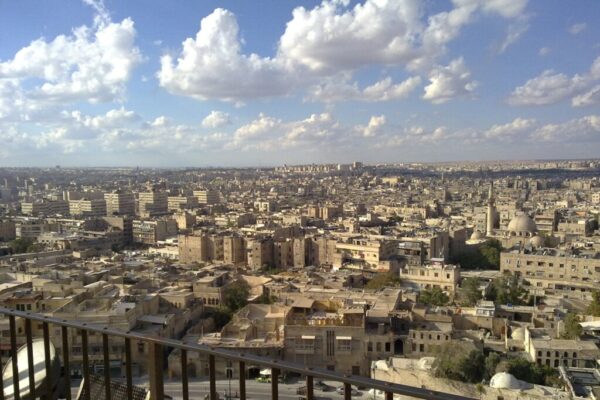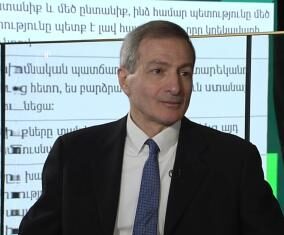WATERTOWN/ALEPPO — The incredibly swift end in December to the slow-churning, devastating, decade-long Syrian Civil War caught both Syrians and the rest of the world by surprise.
Ahmed al-Sharaa (nom de guerre Abu Mohammad al-Jolani), the leader of the rebel group Hayat Tahrir al-Shams (HTS), an Al Qaeda offshoot, led the surprising and winning push, which took Aleppo in late November, before charging on the capital Damascus, resulting in the swift fleeing of dictator Bashar al-Assad and his family to Moscow.
In an interview on Friday, December 13, Archbishop Magar Ashkarian, the leader of the Armenian Apostolic Church in Aleppo, known there as the Armenian Orthodox Church, offered some thoughts about what the Armenian community there is facing now.
Ashkarian was appointed as Pontifical Legate to the Armenian Prelacy in Syria by Catholicos Aram I of the Great House of Cilicia in October 2022. Before that, he held several other positions, including director of the Christian Education Department of the Catholicosate, Patriarchal vicar for the Armenian Prelacy in Tehran and a pastor in Greece.
The archbishop noted that the community was shocked by the regime overthrow, fearing anarchy at first. However, he added, many in the community now have been reassured by the HTS leadership and are hopeful.
“Generally speaking, the situation in Aleppo is somehow bearable. In the beginning it was unimaginably horrible and scary, because it [the end to the regime] happened suddenly and unexpectedly,” he noted, adding the community worried it was “without protection and support [since] the army and governmental officers had abandoned their posts and left the city and within hours at night the opposition took the city under their control. Naturally some fled and those who remained were in great fear, because of the previous bitter experiences that they lived [through] years ago,” Ashkarian said. “But after few days we as community leaders, all 11 archbishops and bishops of the various Christian denominations, have met with the members of the group that overthrew the government, and they assured us that we should not worry about safety issues or assurance of our people. Presently the situation is much better, but the dominant uncertainty makes it difficult. We must all be patient because for this kind of situation to be brought back to its normal state or to be clear needs time, endurance and patience, specially when there is no 100-percent guarantee yet. But as Christians, we always hope and believe that the Lord is with us and know that in all things God works for the good of those who love him.”











